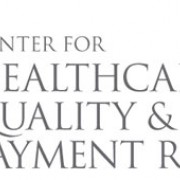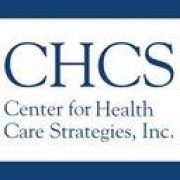You are looking at an archived version of our site. Please visit thepcc.org for a fresh, new experience!
Care Coordination & Integration
In order to have an effective healthcare system that is patient centered, care coordination is inherent. This involves significant communication between health professionals, to ensure that quality care is consistently provided to patients. In addition, as care teams strive to make primary care the center for all of a patient’s general needs, further integration may be necessary. With primary care serving as the “hub” for most patients, incorporating facets of other fields is not only plausible but an obvious next step for better coordination.
The PCC has consistently acknowledged the need for an increase in care coordination, and further integration of other fields, such as oral health and behavioral health. The PCC has shown a commitment to further primary care integration by creating the Primary Care and Behavioral Health Integration Workgroup and participating in grants centered around increasing the visibility of oral health in the primary care space.
Resources

California Academy of Family Physicians | February 2014

Blue Cross Blue Shield Association | February 2014

American Geriatrics Society | February 2014

The Commonwealth Fund | February 2014

Center for Health Care Quality & Payment Reform | February 2014

Center for Health Care Strategies, Inc. | February 2014

Annals of Family Medicine | January 2014
- ‹ précédent
- 18 of 34
- suivant ›
News
December 18, 2018 | STAT
December 12, 2018 | Health Affairs Blog
December 7, 2018 | The Boston Globe
December 4, 2018 | Health Affairs
December 4, 2018 | Catalyst for Payment Reform
- ‹ précédent
- 18 of 90
- suivant ›
Events & Media
October 21, 2018
February 27, 2018
March 20, 2018
- ‹ précédent
- 18 of 73
- suivant ›
Related Content
Pagine
| Titolo | Source | Date |
|---|---|---|
| Psychiatry and Primary Health Care: Beyond Integration, Toward Fusion? | Psychiatric Times | July 27, 2016 |
| Let’s Take Our National Mental-Health Crisis Out of the Emergency Room | Market Watch | July 19, 2016 |
| Evaluating the Impact of Parent-Reported Medical Home Status on Children's Health Care Utilization, Expenditures, and Quality | RAND Corporation | July 5, 2016 |
| Docs, Nurses Press for Changes to MACRA Rule | MedPage Today | June 27, 2016 |
| 6 Success Factors for Pediatric Patient-Centered Medical Homes | HealthIT Analytics | June 24, 2016 |
| Nurse Coordination, PCMHs Help Medicare ACO Generate Savings | Fierce Healthcare | June 23, 2016 |
| 10 Tips to Reduce Poor Quality Healthcare, Unjustified Care Costs | Medical Economics | June 18, 2016 |
| NCQA Releases Patient-Centered Medical Home Standards Updates | HealthIT Analytics | June 14, 2016 |
| Team-Based Care:What Do Patients Think? | Primary Care Progress | June 9, 2016 |
| Medicare Final Rule Boosts ACO Care Coordination Incentives | Fierce Healthcare | June 7, 2016 |
Pagine
Associated Stakeholders:
Secondary menu
Copyright © 2024 Primary Care Collaborative















